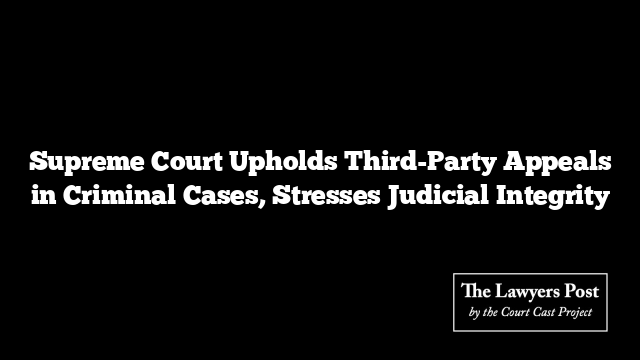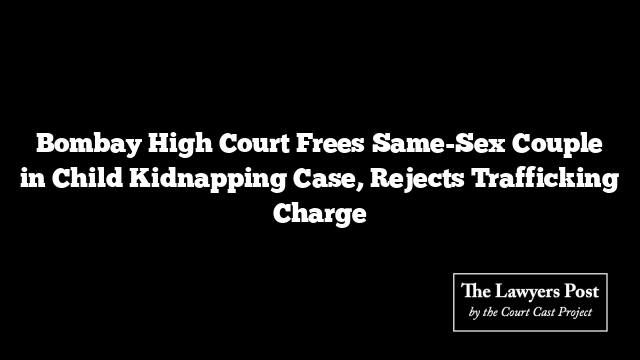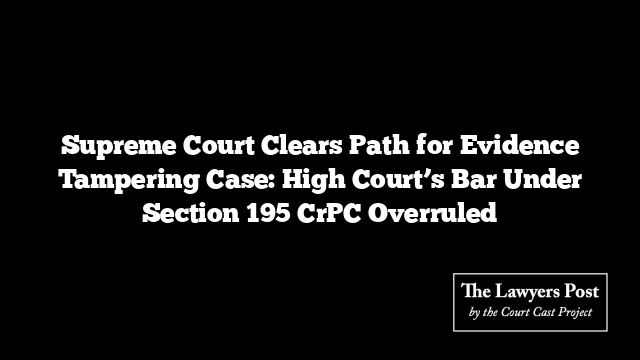In a significant ruling, the Supreme Court affirmed that third parties with a bona fide connection to a case can challenge the quashing of criminal proceedings under Article 136 of the Constitution. This decision reinforces the judiciary’s commitment to addressing systemic concerns even when state entities fail to act.
The ruling came amidst a challenge involving Kerala MLA Antony Raju, whose criminal case was quashed by the High Court. Raju argued against the locus standi of MR Ajayan, a news editor, who filed a Special Leave Petition (SLP) to contest the High Court’s decision. However, the bench, comprising Justices CT Ravikumar and Sanjay Karol, dismissed the objection, emphasizing that allegations of judicial interference demand rigorous scrutiny regardless of the petitioner’s identity.
The controversy stemmed from accusations against Raju, dating back to his early career, involving tampering with evidence in a drug-related case. Although the High Court quashed proceedings against him, it ordered fresh investigations into the alleged conspiracy. Ajayan’s intervention sought to challenge this quashing, citing broader concerns about the integrity of judicial processes.
Relying on precedents, the Supreme Court highlighted that third-party appeals can be entertained to advance substantial justice. It noted that such actions often serve public interest, particularly when systemic issues like interference in judicial processes are at stake.
“Actions that undermine the judicial system erode public trust and compromise the rule of law,” the Court observed. It underscored that the alleged tampering of evidence in this case—undertaken without any lawful order—necessitated intervention to protect judicial integrity.
The judgment reaffirms the Court’s proactive stance in ensuring justice extends beyond technicalities, enabling third parties to challenge procedural lapses where public trust is at risk.





